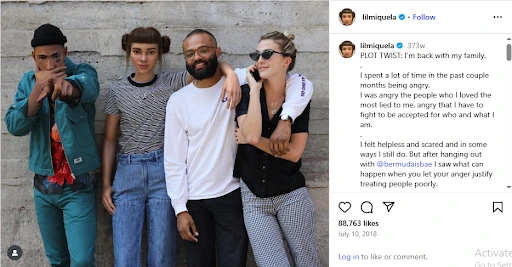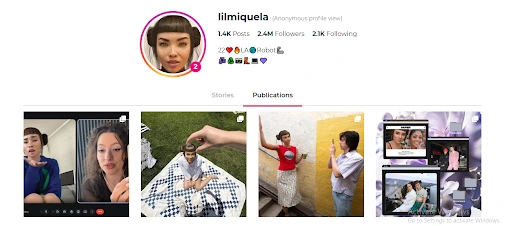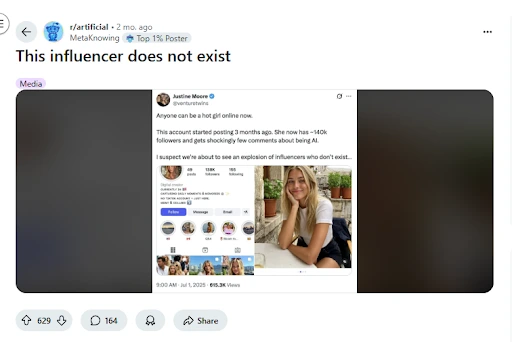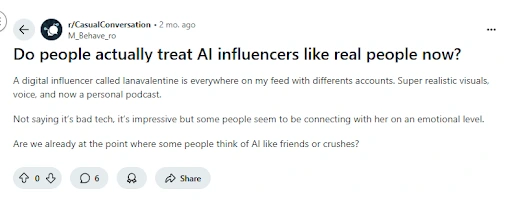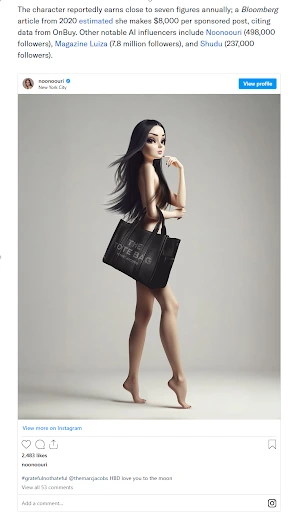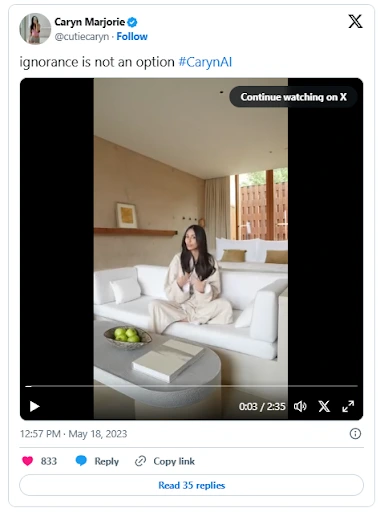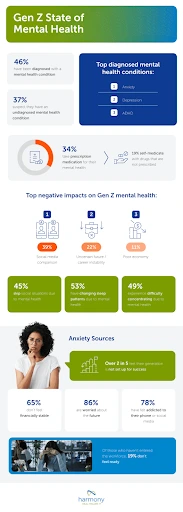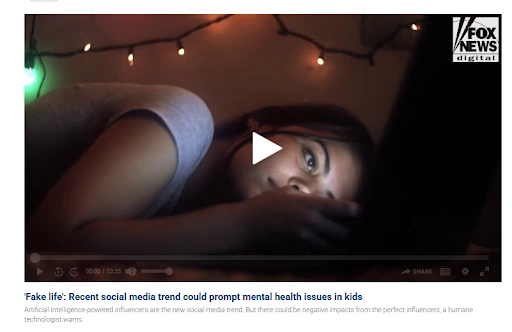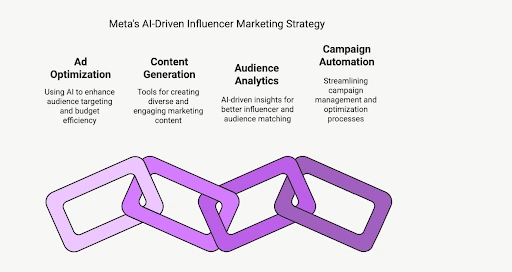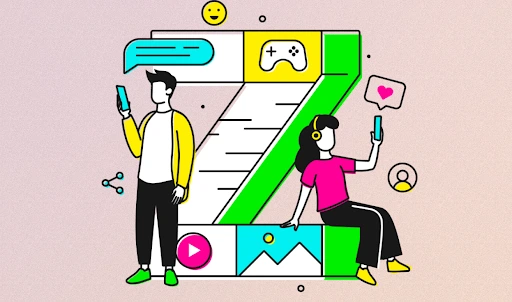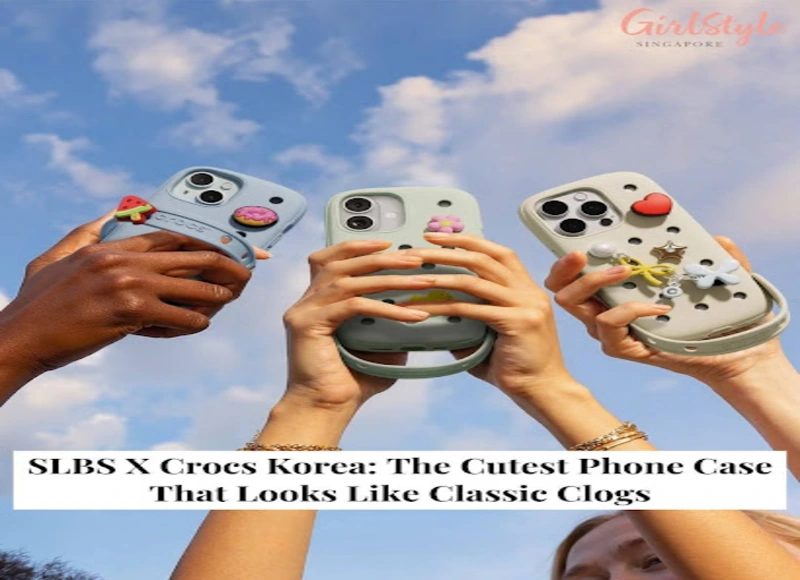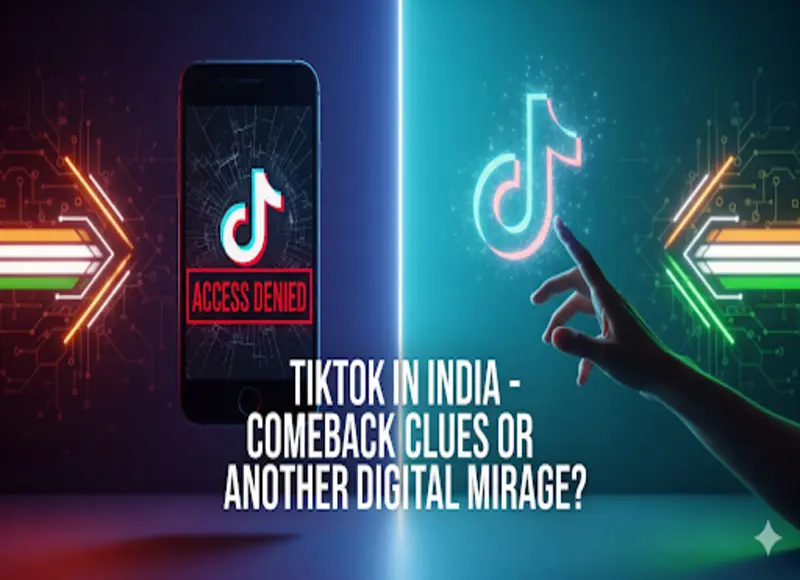When Virtual Meets Real: Gen Z’s Quiet Embrace of AI Influencers
-
Last Updated:
04 Sep 2025
-
Read Time:
7 Min Read
-
Written By:
 Ashutosh Tripathi
Ashutosh Tripathi
-
4027
Gen Z is slipping AI influencers into their feeds with surprising ease, trusting their shopping tips, powering a multi-billion dollar market, reshaping brand culture, and sparking new conversations about mental health.
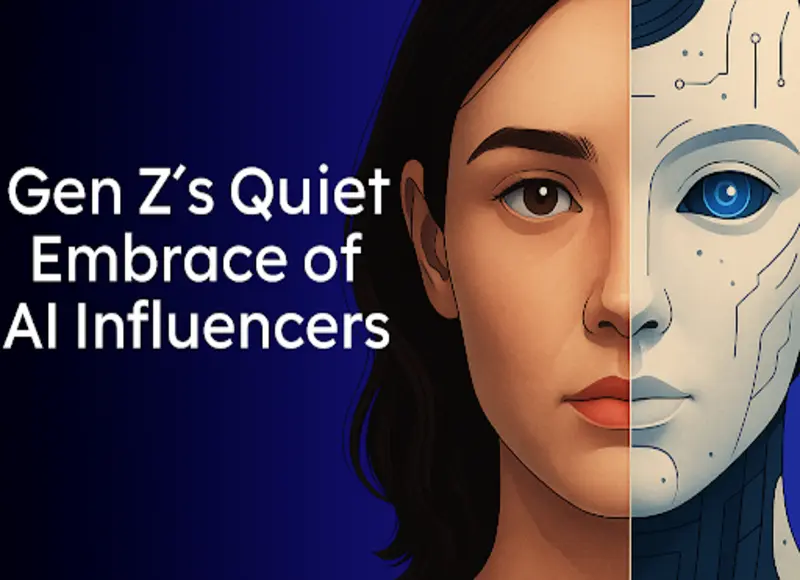
Key Facts
- Nearly 46% of Gen Z consumers trust brands partnering with AI influencers, preferring them over traditional celebrities (Sprout Social 2024).
- Lil Miquela, the top AI influencer, boasts 2.4 million Instagram followers and works with brands like Prada, Calvin Klein, and BMW, earning over $8,000 per post (Bloomberg, 2020).
- 1 in 3 Gen Z shoppers rely on AI influencer recommendations for purchasing decisions (Whop 2025 survey).
- The global AI influencer market hit $4.6 billion in 2024, growing 26% annually, largely driven by Gen Z engagement (Influencer Hero 2025).
- Social media comparisons fueled by AI influencer perfection contribute to 39% Gen Z mental health challenges like anxiety and depression (Harmony Healthcare IT 2025).
- Meme culture powered by AI influencers fuels high engagement and brand marketing, shaping Gen Z’s digital vernacular (Background Noise Blog 2025).
What Happened: AI Influencers Become Mainstream Among Gen Z
AI influencers like Lil Miquela, Shudu, Imma, and Noonoouri have shifted from digital novelties to key players in Gen Z’s online landscape. Created through advanced AI and CGI, they deliver curated, flawless content that aligns closely with Gen Z’s digital tastes and shopping behaviors.
Brands like Prada, Dior, Calvin Klein, Samsung, and BMW have signed AI influencers for their campaigns, saving costs while amplifying engagement on platforms such as Instagram and TikTok. Lil Miquela alone commands 2.4 million followers and generates revenues estimated in the millions annually through sponsored posts.
Gen Z values these influencers not despite their artificiality but often because of the designed consistency and aspirational aesthetics they offer - a contrast to the unpredictability of human influencers.
How It Spread: Algorithms, Memes, and Gen Z’s Native Digital Culture
Gen Z, the first generation raised entirely in social media’s prime, thrives on fast, meme-rich, and culturally fluid content. AI influencers spread rapidly through recommendation algorithms on Instagram, TikTok, and X, magnified by viral memes and humor-intensive trends.
Reddit discussions reveal that Gen Z users are aware of AI influencers’ artificial nature, yet many accept them as part of the cultural conversation, engaging in communities that dissect, parody, and embrace virtual celebrities.

The seamless blend of memes and AI-generated content aligns perfectly with Gen Z’s preference for entertainment that feels fresh, shareable, and participatory, propelling AI personas into everyday digital vernacular.
Why It Matters: Economic Surge and Cultural Recalibration for Gen Z
The AI influencer market’s explosive growth - valued at $4.6 billion in 2024 with 26% annual growth - is heavily fueled by Gen Z’s shopping habits and digital loyalty. Nearly a third of Gen Z consumers now make purchase decisions based on AI influencer recommendations, a figure unmatched in older generations.
Brands gain from scalable messaging and algorithmic tailoring, reducing campaign costs and increasing ROI. Gen Z sees AI influencers as aspirational figures who simultaneously entertain and influence identity formation, shaping new norms for beauty, fashion, and lifestyle.
However, alongside opportunity, this shift introduces complex cultural questions about authenticity, representation, and the impacts of perfection-driven virtual role models.
What’s At Risk: Mental Health and the Authenticity Paradox for Gen Z
Mental health challenges among Gen Z are well-documented: 46% have received mental health diagnoses, and 39% attribute significant anxiety and depression to social media comparison pressures. AI influencers, with their perfected, synthesized personas, amplify these pressures - creating unattainable beauty and lifestyle ideals.
Experts warn that such hyper-curated digital standards can distort young users’ self-image and heighten feelings of inadequacy. Reddit user discussions confirm Gen Z’s ambivalence - while some find connection and entertainment in AI influencers, others see the content as manipulative or emotionally shallow.
The authenticity paradox emerges starkly: Gen Z desires genuine interaction but often favors content based on followers and virality over “realness” - a trend fueling the rise of AI influencers despite doubts.
Where the Opportunity Lies: Hybrid Creativity and Gen Z Empowerment
Brands and creators are increasingly exploring hybrid models - blending AI influencers with human input to balance scalability with authenticity. Meta’s recent rollout of AI avatar creation tools empowers Gen Z users themselves to build and monetize virtual personalities, marking a new frontier in creative control.
For Gen Z, these developments provide a dual benefit: innovation in digital expression and new economic opportunities through social commerce and personal branding. The sustained success of AI influencers will hinge on brands’ ability to maintain transparency, ethical standards, and support for user mental health.
As Gen Z matures, its relationship with virtual influencers is set to shape the future of digital culture - where the line between virtual and real is ever more fluid, yet demands accountability and authenticity.
Gen Z AI Influencers Digital Cultural Shift Defines Tomorrow
Gen Z’s embrace of AI influencers represents a quiet yet monumental shift in digital culture and commerce. It blends economic innovation with evolving social values, driving a new era of influencer marketing and online identity. While this fusion opens unparalleled opportunities, it also challenges notions of authenticity and mental health crucial to Gen Z’s wellbeing.
Navigating this landscape responsibly will determine whether AI influencers remain empowering fixtures - or fading digital fads - in Gen Z’s social universe.
Recent News
Crocs Reinvents Its Iconic Clogs as Trendy Phone Cases with SLBS Collaboration
-
08 Sep 2025
-
6 Min
-
3863
